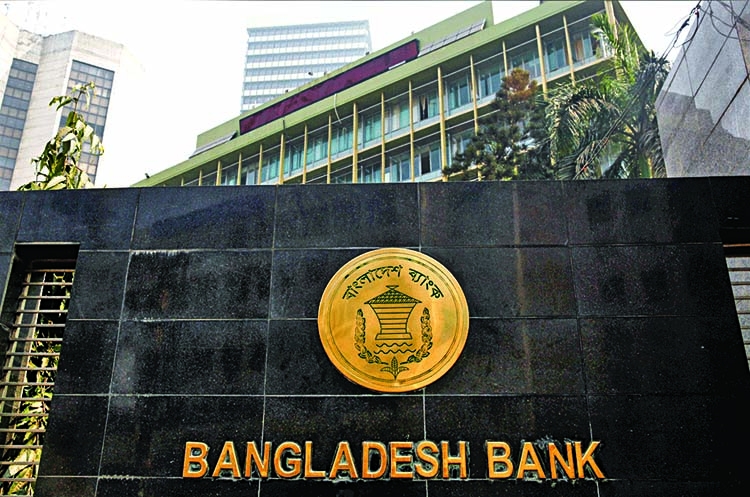
BB takes cautious monetary stance, hikes policy rate

The Bangladesh Bank has taken a cautious policy stance in a bid to slow inflation and stabilize the exchange rate.
For the new fiscal year starting today, it has increased the policy rate by 50 basis points to 5.50 per cent and decreased the private sector credit growth target to 14.1 percent from 14.8 per cent.
After a surprise rate hike in May 29, the BB raised the rate for the second time in a month.
“The decision was taken to deal with the demand side pressures along with ensuring the required flow of funds to the priority and productive sectors to promote supply-side activities”, said the central bank in its monetary policy statement (MPS) for the new fiscal year unveiled on Thursday.
“The central bank’s monetary and credit programmes for FY23 will pursue a cautious policy stance with a tightening bias to contain inflation and exchange rate pressures while supporting the economic recovery process, ensuring the necessary flow of funds to the economy’s productive and employment generating activities for long-term economic growth,” it said.
The MPS said that the central bank will introduce a new refinance line of credit for import-substituting products to minimise import dependency and save valuable foreign exchange reserves.
During July to April of the outgoing fiscal year, imports rose by 42 per cent to $68 billion while export earnings grew by 34 per cent to $41 billion, as per the central bank data.
The forex reserve has come down to $41.75 billion due to the growing import payments after Covid-19 pandemic.
The BB governor said the LC margins for luxury goods, fruits, non-cereal foods, canned and processed foods will be increased comprehensively to discourage their imports in the upcoming fiscal year.
It will continue its support to implement the government’s ongoing stimulus packages alongside BB’s refinance schemes in the face of new adversities, including the Russia-Ukraine war in addition to the Covid-19 pandemic.
Rising import payments and the slow trend in remittances put pressure on the forex market. The local currency was devalued by 8.66 per cent against the US dollar in six months of this year.
On Thursday, the inter-bank exchange rate stood at Tk 93.45 per dollar while it neared Tk 100 in the kerb market.
“A review of the latest state of the global and domestic economy, and the recent economic impact of floods in the northeast shows that the main challenge for the monetary policy for FY 2022-23 would be to stabilize the domestic exchange rate,” said the BB Governor Fazle Kabir while launching the new MPS. “We’re taking a cautious policy stance for considering those issues,” he said.
The BB will continue to strive for the overall stability and long-term development of the capital market, which is essential for the development of the country’s financial sector, in FY23 as in the past, he said.
However, there was no indication in the new MPS to lift the ceiling of lending rate cap, which may not bring any positive effect to contain the soaring inflation and curb wild exchange rate swings, according to analysts.
“We didn’t see that the 9 per cent ceiling will bring any adverse impact as the weighted average lending rate is 7.08 percent now,” said the BB governor in reply to a question.
He said that the next BB governor will consider the issue if needed in the days to come.
On deposit rate at six per cent, the BB governor said there remained no ceiling for deposit rate. Rather, the market itself determined the rate, he added.
In order to increase the liquidity in the capital market, the size of the assistance fund for the affected small investors has been increased by Tk 153 crore to Tk1,009 crore at the initiative of Bangladesh Bank, said the MPS.
The central bank projected that the trade deficit will increase further to $36.70 billion in FY23.
“The new monetary policy will not be effective unless the ceiling of lending rate is lifted,” said Zahid Hussain, the former lead economist of the World Bank’s Dhaka office.
“This monetary policy is a predetermined one as exchange and interest rates have been fixed. It is nothing but an accounting exercise,” he said.
“The monetary policy lacks clear-cut guidelines on bringing down the rising inflation. If the government increases the power and diesel tariffs, the inflation will continue to go up,” he added.
Hussain said the market is waiting for the message about the interest rate. “The 5.5 per cent policy rate would have been relevant if the interest rate cap was withdrawn.”
Professor Mustafizur Rahman, distinguished fellow at the Centre for Policy Dialogue (CPD) told The Business Post, “I think implementing monetary policy will be a big challenge.”
“The central bank needs to pay attention to keeping credit flow to the private sector.”
Editor & Publisher: S. M. Mesbah Uddin
Published by the Editor from House-45,
Road-3, Section-12, Pallabi, Mirpur
Dhaka-1216, Bangladesh
Call: +01713180024 & 0167 538 3357
News & Commercial Office :
Phone: 096 9612 7234 & 096 1175 5298
e-mail: financialpostbd@gmail.com
HAC & Marketing (Advertisement)
Call: 01616 521 297
e-mail: tdfpad@gmail.com